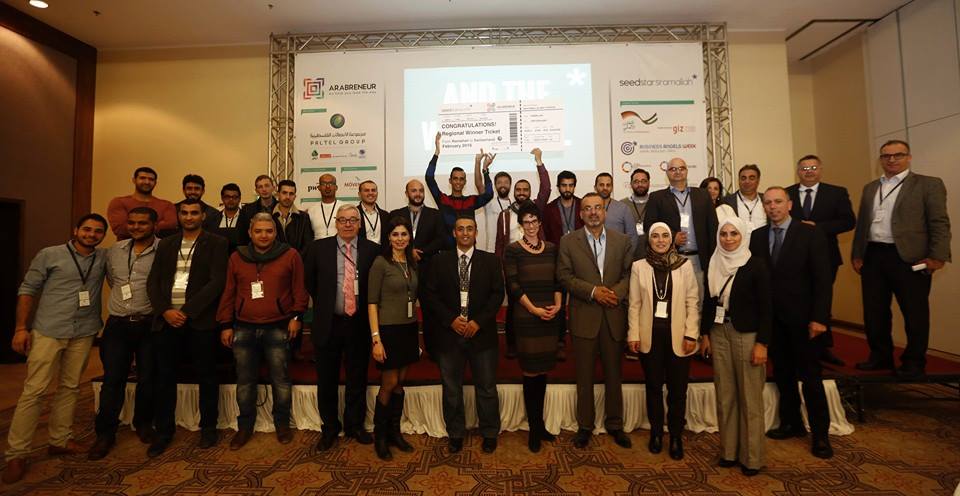The idea behind The Walking Tech, a startup specializing in eco-friendly sportswear products, began with two Palestinian students going for a run in midwest America. In 2015, Abuolwan and Qaraib were studying Entrepreneurship at the University of Indiana when they encountered a common inconvenience. “Our Palestinian SIM cards did not work when we were in the United States,” says Abuolwan, “so we could not follow our progress while exercising.”
The Walking Tech has since joined a worldwide race to develop artificial intelligence for running shoes. Specifically, the market is rapidly developing high-tech insoles that send live data from the runner’s feet to a mobile app. The Walking Tech’s flagship insole product, Insolito, distinguishes itself from competitors by extensively using recycled materials.
Palestine is plagued by a range of waste management challenges. Trash abounds on the streets of both the West Bank and Gaza, with the political situation sometimes contributing to the impasse. Residents of East Jerusalem, for example, must dispose of garbage by walking several kilometers and crossing a security checkpoint. Reports also suggest that the West Bank has become a dumping ground for toxic waste.
Yet beyond these factors, Abuolwan argues that many Palestinians need to confront negative attitudes towards recycling from within the community. “There are many campaigns about recycling, but no one listens,” she says. This might change if a product like Insolito succeeds, showing that sustainable business practices can have a commercial edge too.
A truly global startup:
Abuolwan credits her experiences in the United States as crucial to founding The Walking Tech. She augmented her entrepreneurship lessons in Indiana with a 2016 fact-finding trip to Silicon Valley, which opened up a new range of technical and commercial ideas. “That trip enlightened me,” she says.
Back in Palestine, the partners formed The Walking Tech in 2015 and later received a $25,000 grant from a local startup accelerator. They used the funding to study foot movement simulations and, eventually, develop the first prototype for Insolito. The product’s current version uses PCB sensors to transmit information from the shoe insoles to a mobile application.
The Walking Tech first plans to target the European middle-income market, offering a basic run-tracker product for around $85. The price will increase depending on the number of accessories the purchaser would like to add. These enhanced features will include competing directly with other runners, music streaming and even restaurant recommendations. Success in Europe would see The Walking Tech next pivot towards consumers in Gulf countries like the United Arab Emirates.




